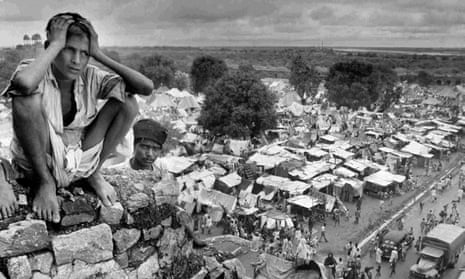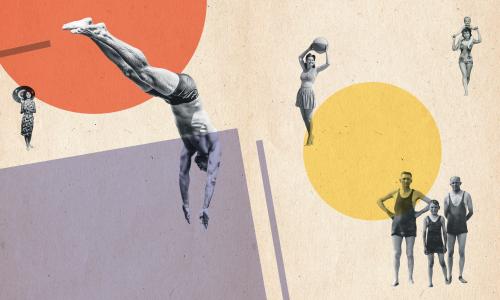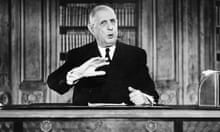The partition of India in 1947 displaced between 10 million and 12 million people along religious lines, causing refugee crises and violent tensions that continue to this day. As Britain left India, it drew a boundary, creating Pakistan, as the country split into two.
What Partition was, how it was managed and how it produced division between Hindu, Muslim and Sikhs has been written about extensively. We know it involved one of the largest ever mass migrations. We know that millions died. We know that certain regions are still disputed today. What we don’t often hear about are the people who became collateral damage in the aftermath of a hastily drawn border. I’ve often thought about those who lived through Partition and what they saw. What I had never appreciated was that some of them are here in the UK, dotted among us, dealing with the trauma of what they experienced and, in some cases, what they did.
Kavita Puri’s book is the most humane account of Partition I’ve read (it started life as a series of programmes on Radio 4). Crucially, it distances itself from the politics of independence, from celebrating the British empire and the benefits it gave those under its rule. Instead, it gives a voice to those affected by Partition.
Puri’s own father provides one of the many first-hand reports of the months leading up to division and uncertainty, and the cruel price it exacted. We meet characters who, as children, saw loved ones raped and murdered, who saw death and destruction everywhere, as well as small but notable acts of bravery and compassion.
Harchet Bains, a retired broadcast engineer, talks of moving from one side of the border to the other, from western Punjab to east Punjab, and the senselessness of what he witnessed. “They say we are independent,” he tells Puri. “But what good is that when you have lost everything?”
Elsewhere, people mourn friends and loved ones of different faiths, revealing what they left behind, from possessions to relationships. One person recalls how her sickly mother overheard people she knew discussing how to set fire to her house so she couldn’t escape.
We learn that the border crossed agricultural lands, cut communities off from their pilgrimage sites, gave no thought to the effect on railways and separated industrial plants from the suppliers of raw materials.
We meet Bashir Maan, who went from a young man with mostly Hindu friends to campaigning for the Muslim League for an independent Pakistan to a prominent politician in the Scottish Labour party; he now says that India would have been better off staying together and pushing for guarantees for its Muslim citizens. We meet Ramen Bannerjee, an activist, gun runner and freedom fighter for, first, independence from the British, then against the Muslim League, which was seen as an enemy of Hindus. We meet men who have been complicit in murder, children who became adults too quickly, mixed-race teenagers who struggled to fit in before and after Partition, and the offspring of colonial settlers who still consider India their home.
Each story contributes to our greater understanding of what Partition meant and how it shaped every single facet of society; how quickly people became divided and how those rifts led to violence. We learn about the mobs, the murders, the idea of citizens as chattels and commodities and bargaining chips, as unwilling and unknowing pawns in a bigger game played by the British.
Partition Voices is important because Puri does not flinch as she dissects the tumultuous event, never shying away from the trauma. If the British empire is to be studied honestly, if colonialism and immigration are to be properly understood, we need schools and universities to embrace such oral histories or we will never know the truth about Partition and how it destroyed the lives of millions. We need a candid conversation about our past and this is an essential starting point.
This review is from the Observer










